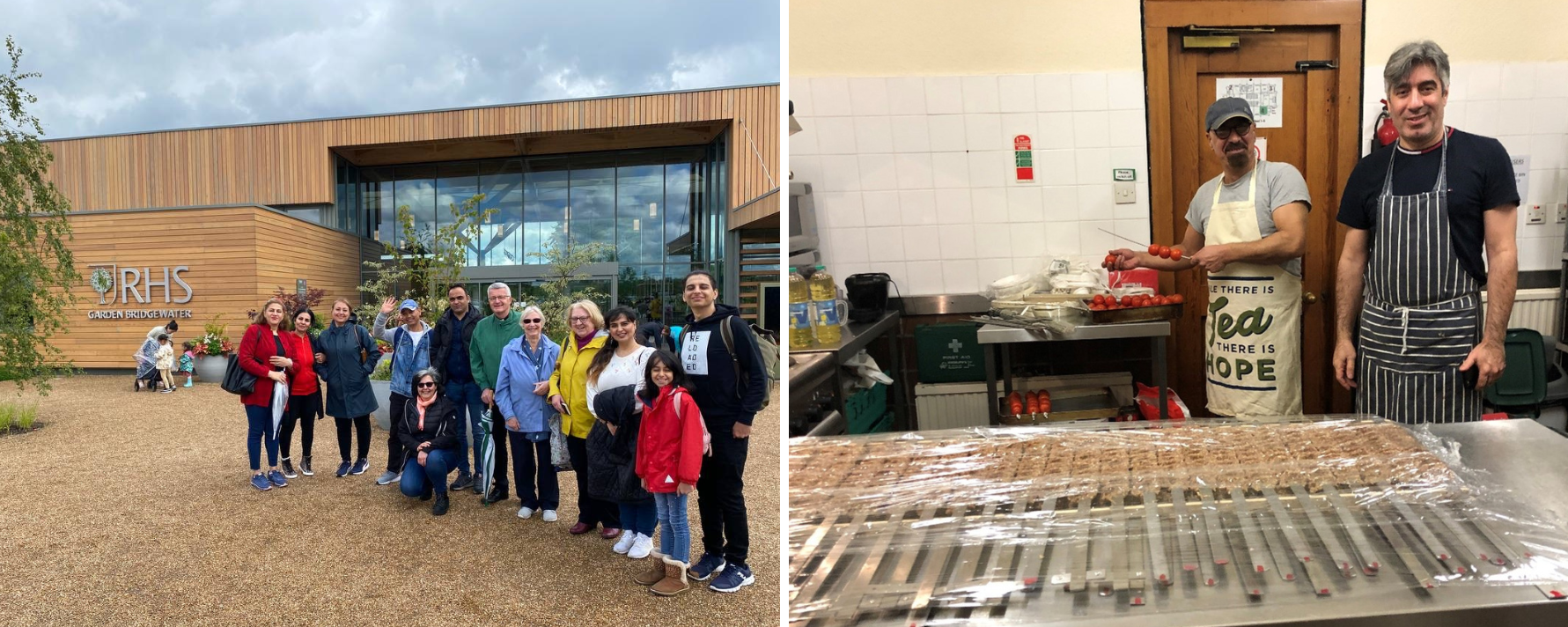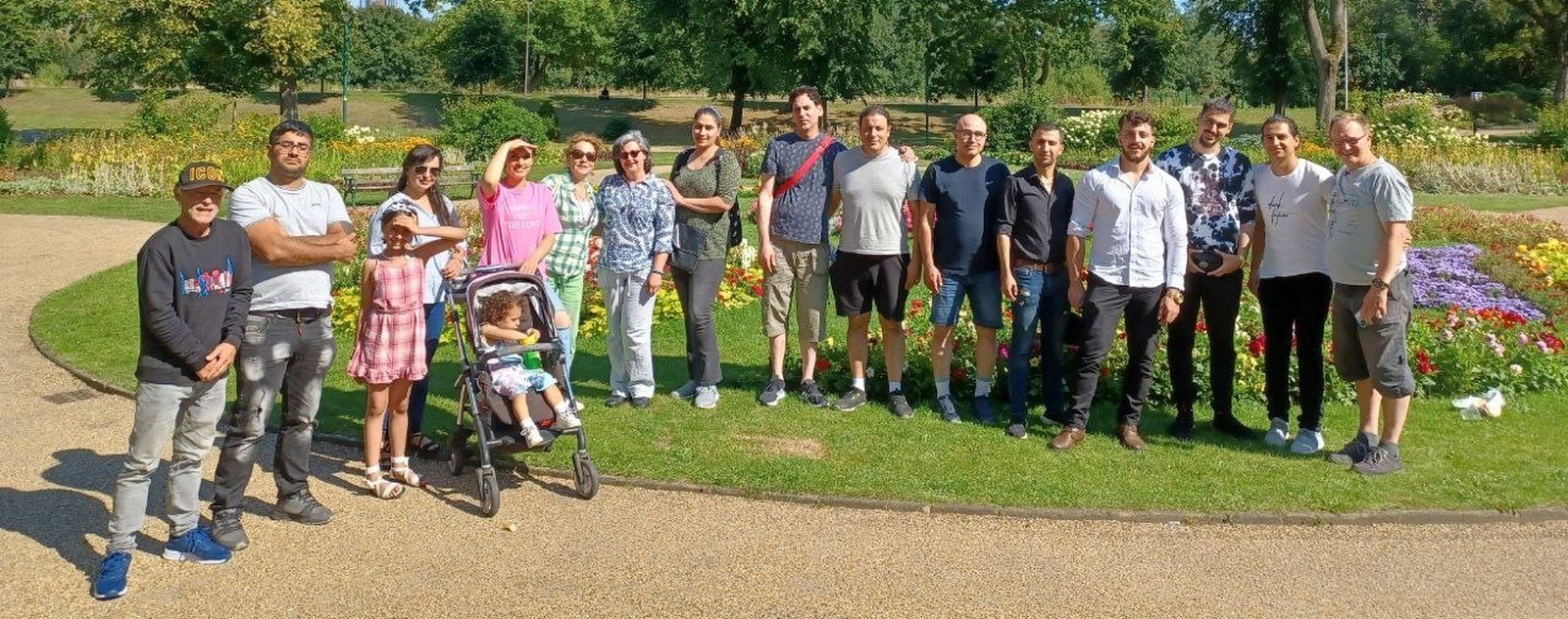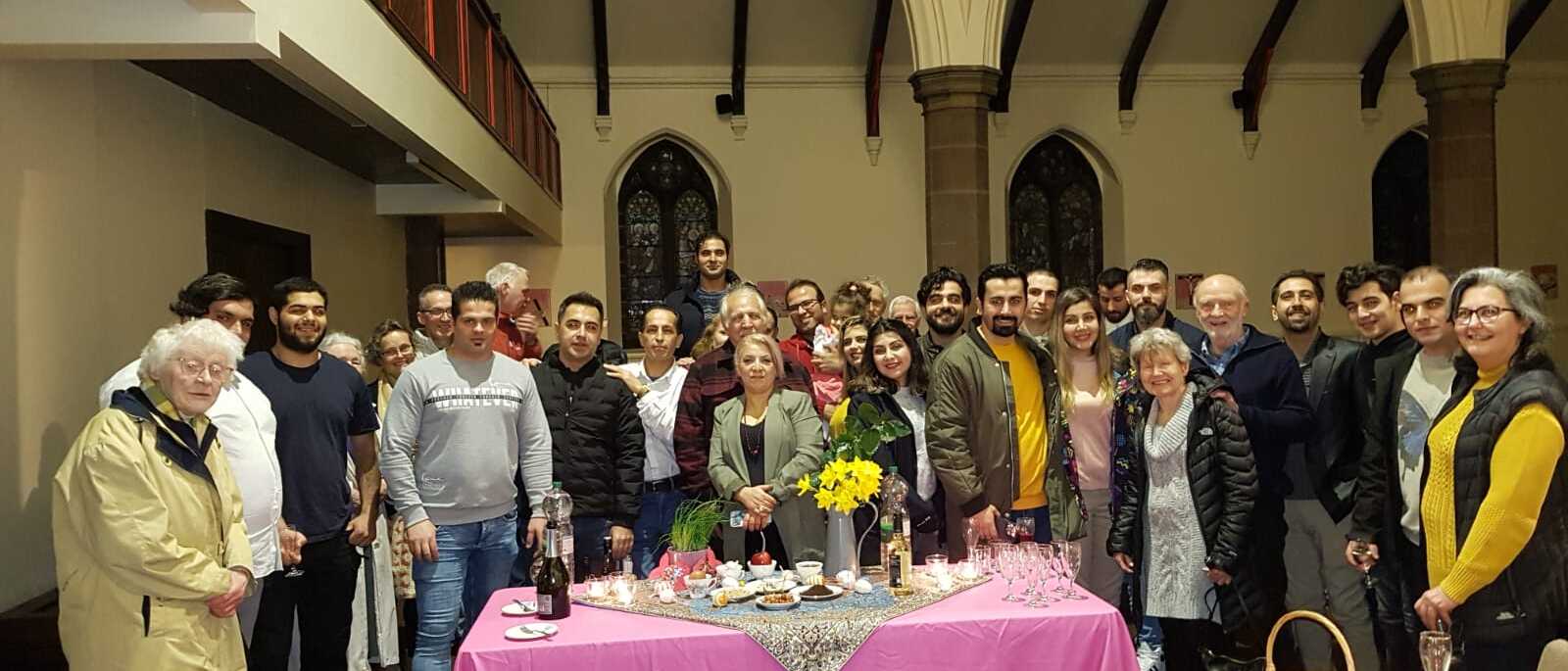Founded in 2020, Taban is a charity which offers practical help to Farsi-speaking asylum seekers and refugees. It was born out of a need to assist a growing community of Iranian asylum seekers attending Holy Innocents, Fallowfield, the first of whom had been housed in a street next to the church. The community had many needs which Holy Innocents struggled to meet alone, and so Taban was established in partnership with two other churches across the city, with the help of a grant from the diocese which was matched by private individuals.
Today, Taban has grown exponentially to help Farsi-speaking migrants of all and no faiths. Revd Richard Young, Rector of Holy Innocents and chairman of Taban, describes it as “a project which was born in the church and started up by the church, but now reaches beyond the church to all parts of Greater Manchester.” Using the initial funding, the charity was able to employ Mojgan Bakhtiary, a Farsi-speaking Iranian who herself was granted settler status here some twenty years ago. With a group of volunteers, she helps members of the Farsi community in many practical ways, from acquiring legal support to accessing services and helping them find employment.

“When they arrive here, Taban can help introduce them to mentors and charities to help with employment”, Richard says, noting that many clients worked in well-skilled jobs in Iran and had to leave because they were in danger. One particular young man was forced to leave his engineering degree in Iran and was able to pick this back up in the UK thanks to involvement from Taban – something which he hadn’t thought possible.
Although it isn’t religious, the charity does express Christian values and uses Holy Innocents; St James and Emmanuel, Didsbury; and St Thomas’, Pendleton to host drop-ins where people can come and seek in-person advice. The charity has also put on social events at the churches to bring people together, including celebrations for the traditional Iranian festival, Nowruz.

Taban conducts its business entirely in Farsi, and Mojgan is able to build strong relationships with clients by speaking their native language and understanding their culture. She liaises with charity users in person and through WhatsApp, phone calls, and emails, nurturing such a relationship of trust that people see her as a friend. For Mojgan it is all about building trust, which can be a challenge when it comes to asylum-seeking communities as they have often experienced a lot of hardship. However, Taban has built up such a credible reputation amongst Farsi-speaking communities that people feel more confident in approaching them for help.
Despite this, Revd Richard says there is still a lot more to do in terms of getting the word out. He has been involved in the project from the beginning when it was simply “an idea to see how it would work in practice.” In the years since it has “grown by word of mouth and a positive reputation” and has reached full capacity after spreading across the North West. As a result, Taban has made new plans to expand further and recruit a second paid worker with the help of the Benefact Trust and National Lottery funding.

It is a testament to Taban’s work that most clients will continue to keep in touch even if they’ve moved away, and some who have received help are now, in turn, offering their help – such is the culture of hospitality and warmth that exists within the Iranian community. Having already created a partnership with members of the community in Greater Manchester, including two new well-established trustees, it is hoped that in the future the Farsi-speaking community can take the lead in running the charity.
If your parish church would like to help migrant communities in your area but is unsure how to begin, signposting to organisations such as Taban for expert and practical help is a great start.
Alternatively, you can contact David Onabanjo, our Intercultural Mission Enabler for guidance. These are just two of the many ways you can welcome people from different cultures, enabling them to settle and feel they belong to the church community as a whole.